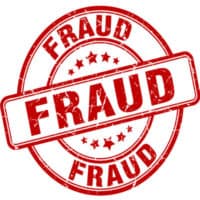
As brokers use increasingly aggressive tactics to appeal to potential investors, consumers must be more discerning. Choosing the right broker can help protect the consumer’s interests and shield them from fraud. In order to make this choice, consumers must know the signs of fraudulent offers.
Researching Potential Brokers
Recent scams involving people posing as executives of Financial Industry Regulatory Authority (FINRA) have prompted the agency to issue numerous warnings. FINRA offers a service called BrokerCheck that allows potential investors to verify that the broker and the firm they are working with are registered and credentialed. Consumers should always check this source independently and compare it to the materials that they received directly from the broker; if anything looks out of place, such as typos, fonts, or differences in the details, the broker’s copy of the report may be a fake.
Beyond BrokerCheck, a simple internet search can help turn up additional facts about brokers. It can reveal whether contact information or addresses are fraudulent and may show whether information in LinkedIn profiles has been copied. Consumers should also search for the broker’s name and the firm name to ensure that the broker is employed there.
Investment Red Flags
Consumers should be wary of using personal information in transactions. Investment information should be exchanged using official firm emails and phone numbers, and consumers should not send their personal information, including Social Security numbers and passports, until they have verified that their broker is legitimate. The sales pitch itself can also be a red flag. No investment can guarantee high returns, especially those with supposedly low risk, so consumers should be wary of promises.
Other Types of Scams
It is not just investment brokers that could potentially be scammers. Domain sales have become popular fraud tools, as people try to sell domains that are not legitimate or not theirs to sell, sometimes for thousands of dollars. Potential buyers should double check that the domain name does not contain any irregular characters, that it is registered in the appropriate country, and that it is listed under the correct owner in the purchase order.
There are many scams designed to target vulnerable populations. Impostor scams, often aimed at the elderly, involve scammers digging up personal information online and using it to convince victims that they are a relative or friend in need of money. Scammers call the victims pretending that there has been some sort of incident, such as an accident or an arrest, and that their loved one needs money wired to them immediately to avoid some dire fate. Military spouses who live in unfamiliar areas and make financial decisions on their own are likely to be targeted for predatory lending schemes, such as loans or credit cards with illegally inflated interest rates, or vehicle scams that do not disclose the damage to cars on sale.
Philadelphia Consumer Fraud Lawyers at the Harty Law Group Fight for the Rights of Fraud Victims
Doing a thorough background search and looking for irregularities in contracts before signing can help people protect themselves against fraud. Unfortunately, many people across the U.S. lose money to fraud each year. If you believe you were the victim of consumer fraud or another type of scam, call the Philadelphia consumer fraud lawyers at the Harty Law Group. Our knowledgeable, experienced team will work tirelessly to achieve the best outcome possible and protect your rights. Call us at 267-383-3899 or contact us online for an initial consultation. Located in Philadelphia and Haddonfield, New Jersey, we serve clients throughout Pennsylvania and New Jersey.

